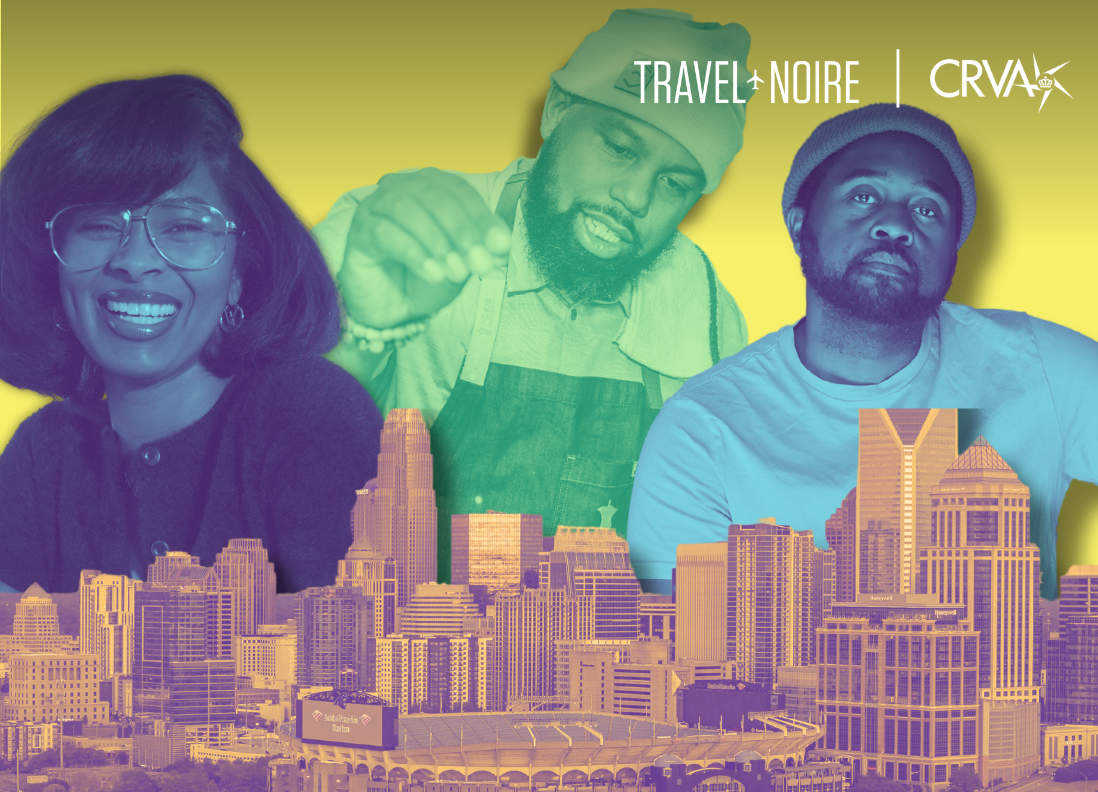This is your sign to book a trip to an affordable destination that’s bustling with new opportunities, mouthwatering cuisine, and a rich history. Charlotte has become the rising star of the Southeast, and it’s not hard to see why. The rapidly growing Queen City is home to entrepreneurs and creatives who are passionately celebrating and preserving Black culture while driving a new era of innovation.
There are plenty of cities across the US with trendy coffee shops, but only Charlotte has a Black-owned, unofficial meeting spot for locals and culture-centric travelers. Archive CLT is a coffee and culture shop that serves every cup with a side of nostalgia. Every inch of the space showcases ephemera like vintage magazines, VHS tapes, and even Black dolls, turning the coffee shop into a safe haven for Black culture.
“I would describe [Archive CLT] as what some beauty parlors were in the ‘90s and what some barber shops currently are,” explained Charlotte native and Archive CLT owner, Cheryse Terry. “It’s a place where Black people exist without the white gaze. It’s a third home – it’s not your house, it’s not work, it’s a third home.”
Terry has been collecting since she was a young girl going thrifting with her mom and thumbing through the pages of JET and Ebony Magazine. She never forgot the impact those memories had not only on her, but on the Civil Rights Movement in the ‘50s.
“I think it was the 21st issue,” Terry recalled of the historic JET issue that shared the heartbreaking story of Emmett Till. “That was the issue that Mamie put her son in the open casket like that and that’s what ignited the Civil Rights Movement. Just thinking about publications being able to spark something around the world like that for Black people… especially as everything moves into a digital space, I want my generation and generations after me to really have a reverence for that work and preserve it.”
Consider making Archive CLT your first stop when planning a trip to Charlotte. It will connect you with the locals who give Charlotte such undeniable depth and character.
“Archive CLT is the kind of place where there’s always going to be a local in the house,” Terry said. “If you really want to learn about Charlotte and really want to connect with Black people in Charlotte, then Archive will give you an easy opportunity to do that firsthand, first visit.”
Once you start connecting with the locals and creatives that call Charlotte home, especially on the city’s historic West End, it’s easy to see that Charlotte boasts an identity of its very own—and the community hopes to keep it that way.
“We have so many dope creatives,” explains Gregory Collier, chef and co-founder of Bayhaven Restaurant Group in Charlotte. “Most of us are tired of being compared to other cities so we have made it a priority to show people Charlotte.”
Collier’s group of hospitality brands includes several must-visit restaurants, but there are two in particular that should be at the top of everyone’s Charlotte itinerary—Leah and Louise and Uptown Yolk. Both restaurants highlight the mastery of Black cuisine by utilizing traditional cooking methods and familiar ingredients to create delectable dishes.
“So often, we Black folks pigeonhole our food into soul food unless the food is connected to a nation (Nigerian, Jamaican, etc.),” Collier shared. “But I believe Southern food with a seasonal conscious and a bit of technique is ever flowing… We want to center Blackness and our experiences in the food vs a Eurocentric ideal of culinary.”
Collier and his wife Subrina may be from Memphis, but even they couldn’t ignore Charlotte’s wealth of opportunities for innovators, creators, and entrepreneurs.
“Subrina picked Charlotte because it was on a list for Black upward mobility and her folks had moved to Charleston,” Collier shared. “Charlotte feels like the story is beginning. We have been here for 12 years and being a part of the future is amazing.”
Collier recently announced that he’s moving his restaurant, Leah and Louise, to one of Charlotte’s historic Black neighborhoods. He fell in love with the West End’s culture and realized he could leave a positive impact on the community while building his hospitality empire.
“Other cities have 50 years of chefs, all levels of culinary experience, a bunch of hotels, etc.,” he explained. “I knew I had room to both find my culinary voice and make an impact on a community that could become my home.”
While Charlotte may now be a hub for creative thinkers and industry disruptors, its roots as a financial city presented challenges to some entrepreneurs who had to kick down doors for the creators that would come after them.
Dammit Wesley is a bold, outspoken artist, curator, designer and DJ who now calls Charlotte home after relocating from South Carolina. He’s also the creative mind behind the Durag Festival and a local art gallery and community called BLKMRKTCLT.
The Durag Festival attracts thousands of people to Charlotte for a party entrenched in Black expression.
“Durag Fest is the met gala of Durags,” Wesley shared. “A black fever dream where you can be unapologetically yourself. So imagine The Wiz, but it’s the Renaissance concert and also The ATL movie at the same time.”
It’s a delightfully accurate description. What started out as an idea for celebrating Black art on Juneteenth became a bold and rebellious statement during a time when durags were having a slight PR crisis.
“People hated the concept,” Wesley explained. “I knew durags had a bad rap but damn. They were treating us like Sexyy Red.”
But that didn’t stop Wesley and his team from pushing forward. Charlotte’s growing community of creatives emerged and offered their full support.
“Our community is responsible for turning it into a full-fledged festival with their energy,” Wesley shared. “Here we are 7 years later still having a ball every Juneteenth at Camp North End.”
For Wesley, the Durag Festival’s growth isn’t just about blending high art and a good time. It’s about the representation of all shades of Blackness.
“Most Juneteenth festivals in the Carolinas highlight our West African/Gullah Geechee origins rather than the current culture of Blackness and beyond,” Wesley explained. “Blackness isn’t a monolith, and every type of [Blackness] deserves to be seen, celebrated, and appreciated.”
Charlotte is continuing to grow and evolve at a rapid pace. Community leaders like Terry, Collier, and Wesley are driving the future of the city’s culture, and they have a clear message for anyone else who has an eye on Charlotte.
“Come to the west side!” Collier exclaimed.
All three of these cultural innovators emphasized the importance of community, so be sure to tap in with the people of Charlotte while you’re exploring the thriving Black-owned businesses ushering in a new era for this historic city. When you’re planning your next trip to Charlotte, head over to charlottesgotalot.com to learn more about businesses and activities you won’t want to miss. You can also follow @charlottesgotalot on Instagram and Facebook.





